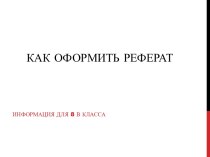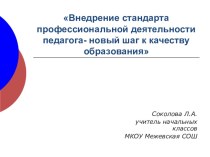- Главная
- Разное
- Бизнес и предпринимательство
- Образование
- Развлечения
- Государство
- Спорт
- Графика
- Культурология
- Еда и кулинария
- Лингвистика
- Религиоведение
- Черчение
- Физкультура
- ИЗО
- Психология
- Социология
- Английский язык
- Астрономия
- Алгебра
- Биология
- География
- Геометрия
- Детские презентации
- Информатика
- История
- Литература
- Маркетинг
- Математика
- Медицина
- Менеджмент
- Музыка
- МХК
- Немецкий язык
- ОБЖ
- Обществознание
- Окружающий мир
- Педагогика
- Русский язык
- Технология
- Физика
- Философия
- Химия
- Шаблоны, картинки для презентаций
- Экология
- Экономика
- Юриспруденция
Что такое findslide.org?
FindSlide.org - это сайт презентаций, докладов, шаблонов в формате PowerPoint.
Обратная связь
Email: Нажмите что бы посмотреть
Презентация на тему International law
Содержание
- 2. International Law, unlike most other areas of
- 3. The immense body that makes up international
- 4. Without a unique governing, enforcing entity, international
- 5. Due to the diverse legal systems and
- 6. Their application covers all the facets of
- 7. There are three main legal
- 8. Principle of Comity - in the instance
- 9. - Act of State Doctrine - respects that
- 10. Doctrine of Sovereign Immunity - deals with
- 11. There are both national laws and international
- 12. Although there is no definitive governing body
- 13. International law may further be broken down
- 14. The UN deals largely with public international
- 15. Скачать презентацию
- 16. Похожие презентации
International Law, unlike most other areas of law, has no defined area or governing body, but instead refers to the many and varied laws, rules and customs which govern, impact and deal with the legal interactions
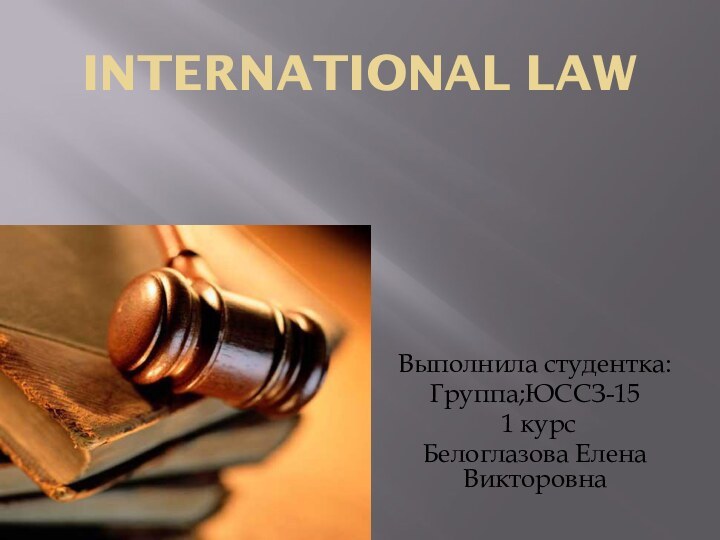
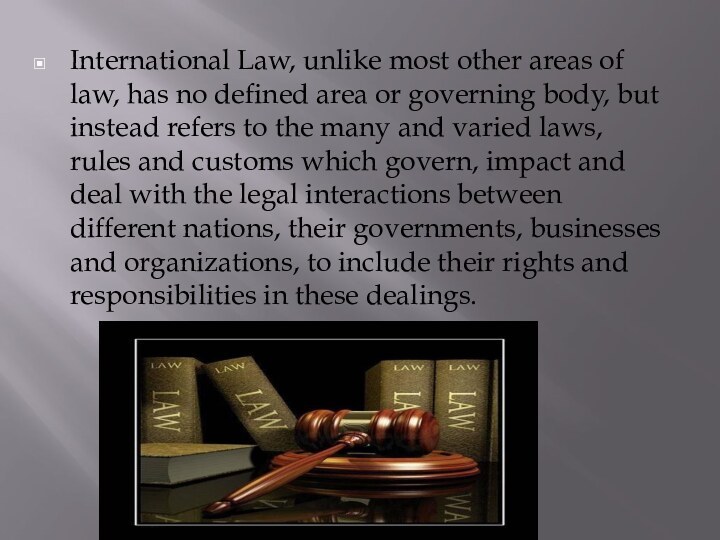
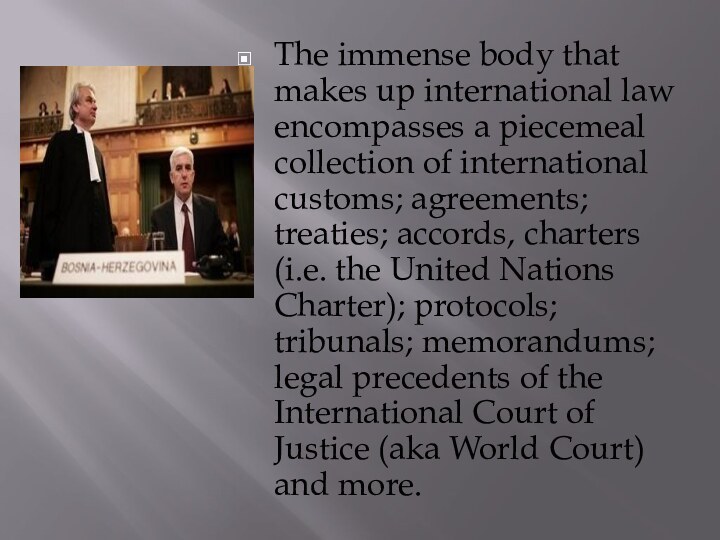
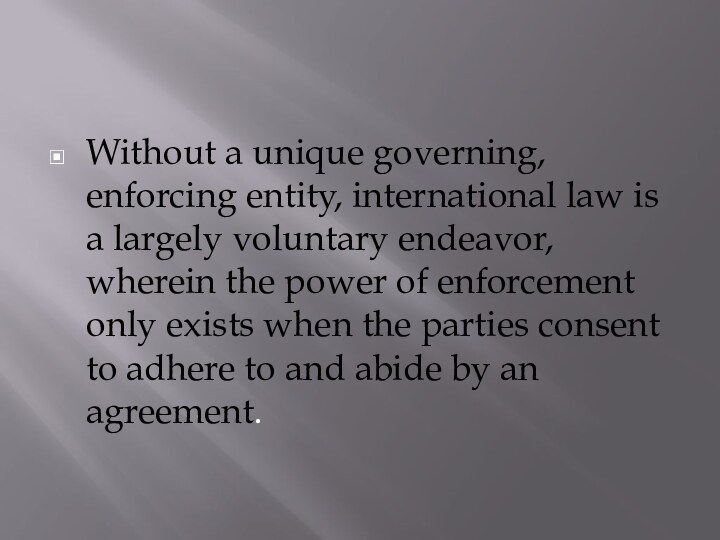
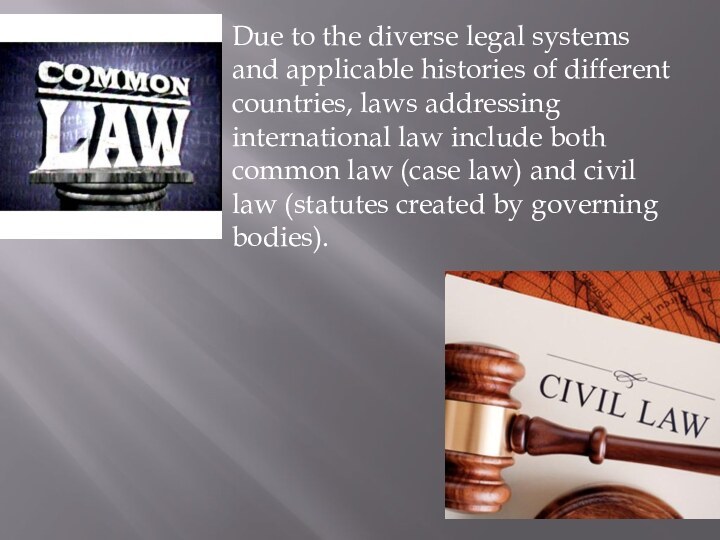
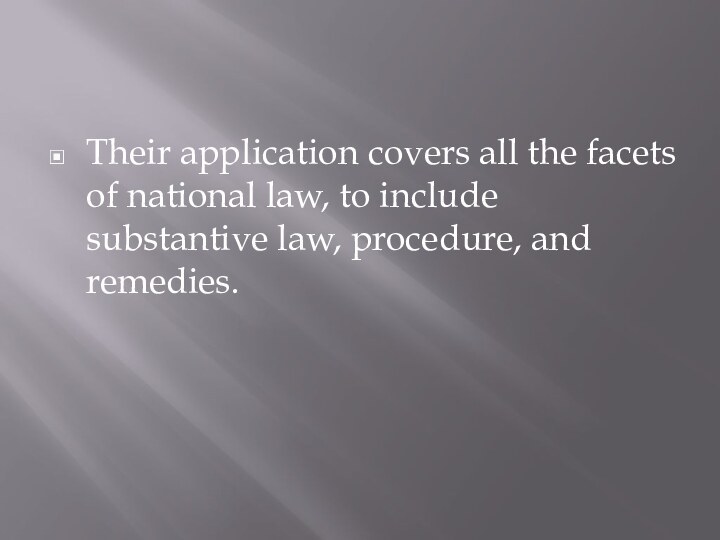
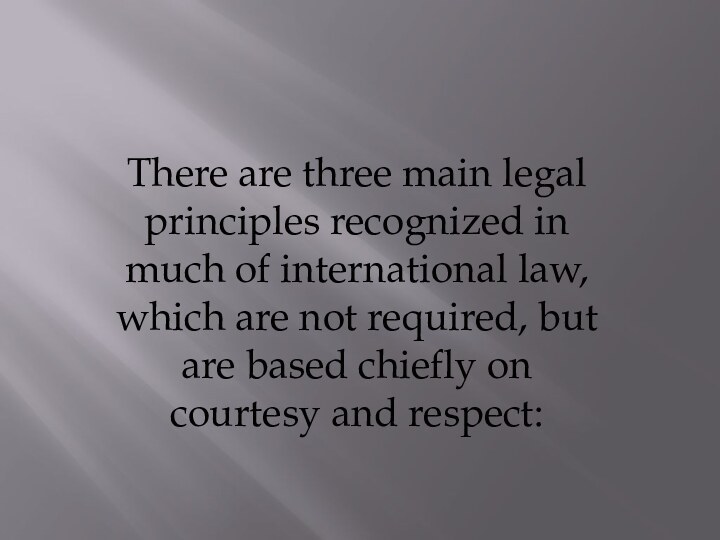
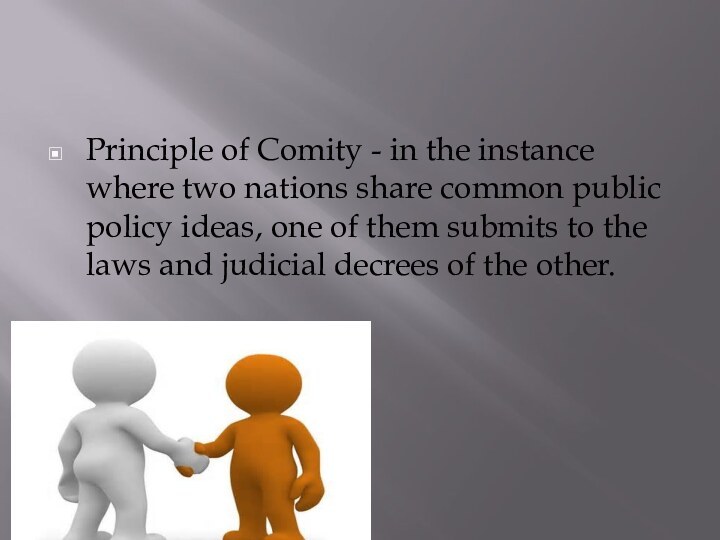
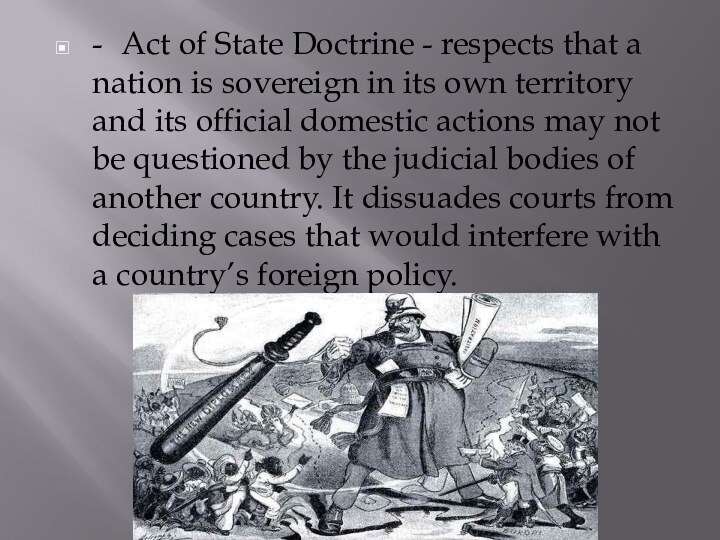
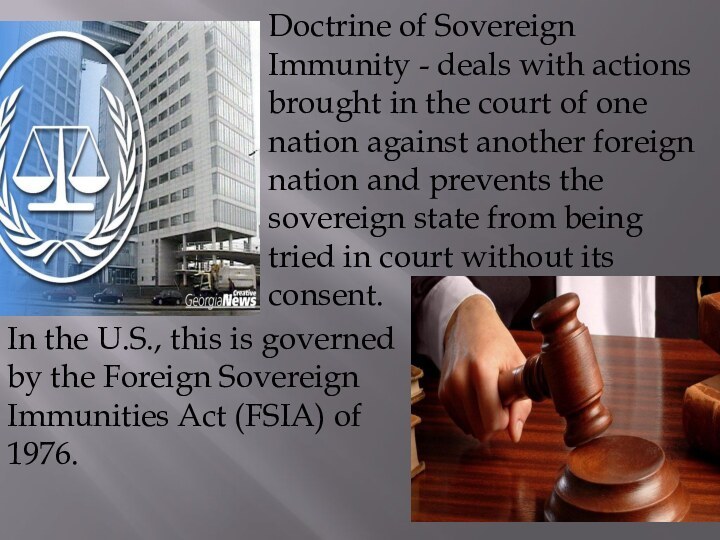
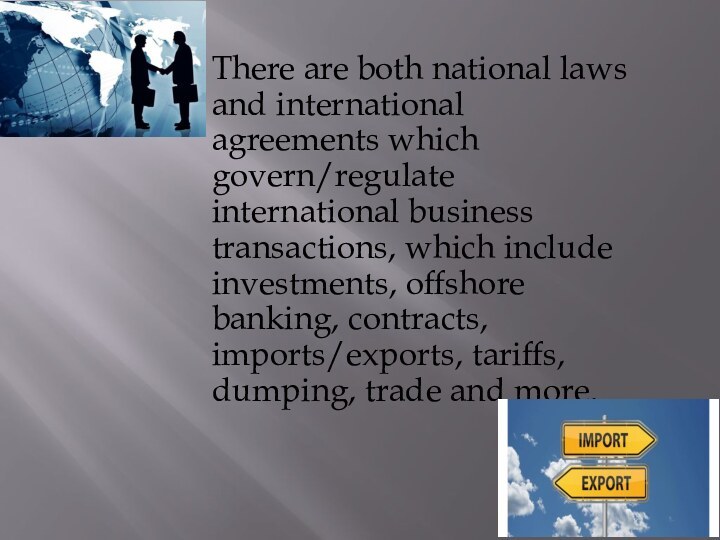
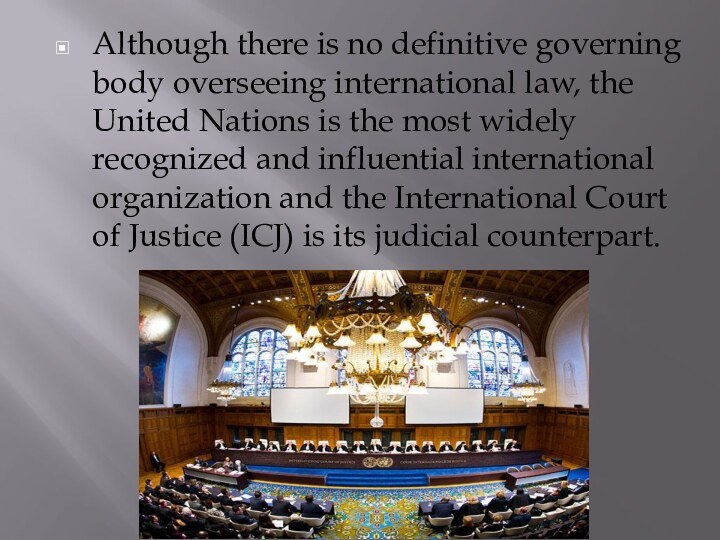
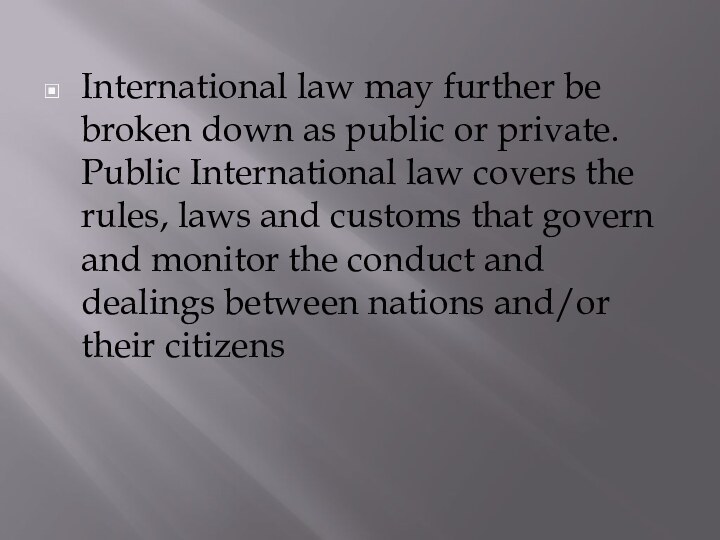
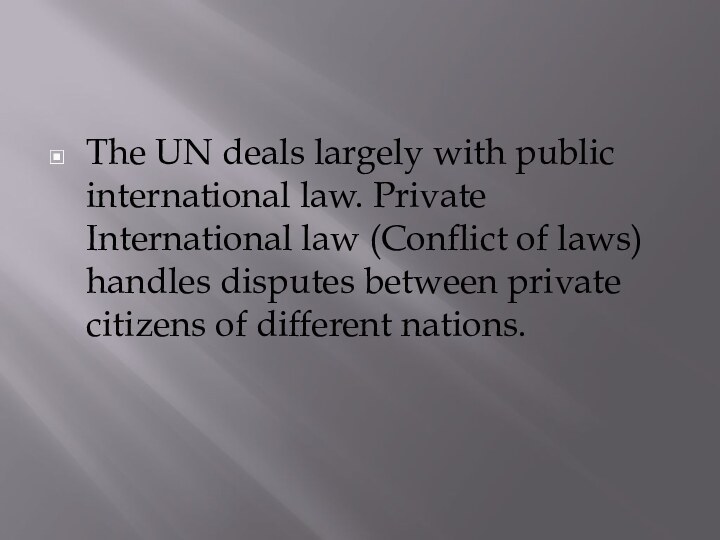

Слайд 3
The immense body that makes up international law
encompasses a piecemeal collection of international customs; agreements; treaties;
accords, charters (i.e. the United Nations Charter); protocols; tribunals; memorandums; legal precedents of the International Court of Justice (aka World Court) and more.Слайд 4 Without a unique governing, enforcing entity, international law
is a largely voluntary endeavor, wherein the power of
enforcement only exists when the parties consent to adhere to and abide by an agreement.Слайд 5 Due to the diverse legal systems and applicable
histories of different countries, laws addressing international law include
both common law (case law) and civil law (statutes created by governing bodies).Слайд 6 Their application covers all the facets of national
law, to include substantive law, procedure, and remedies.
Слайд 7
There are three main legal principles recognized
in much of international law, which are not required,
but are based chiefly on courtesy and respect:Слайд 8 Principle of Comity - in the instance where
two nations share common public policy ideas, one of
them submits to the laws and judicial decrees of the other.Слайд 9 - Act of State Doctrine - respects that a
nation is sovereign in its own territory and its
official domestic actions may not be questioned by the judicial bodies of another country. It dissuades courts from deciding cases that would interfere with a country’s foreign policy.Слайд 10 Doctrine of Sovereign Immunity - deals with actions
brought in the court of one nation against another
foreign nation and prevents the sovereign state from being tried in court without its consent.In the U.S., this is governed by the Foreign Sovereign Immunities Act (FSIA) of 1976.













